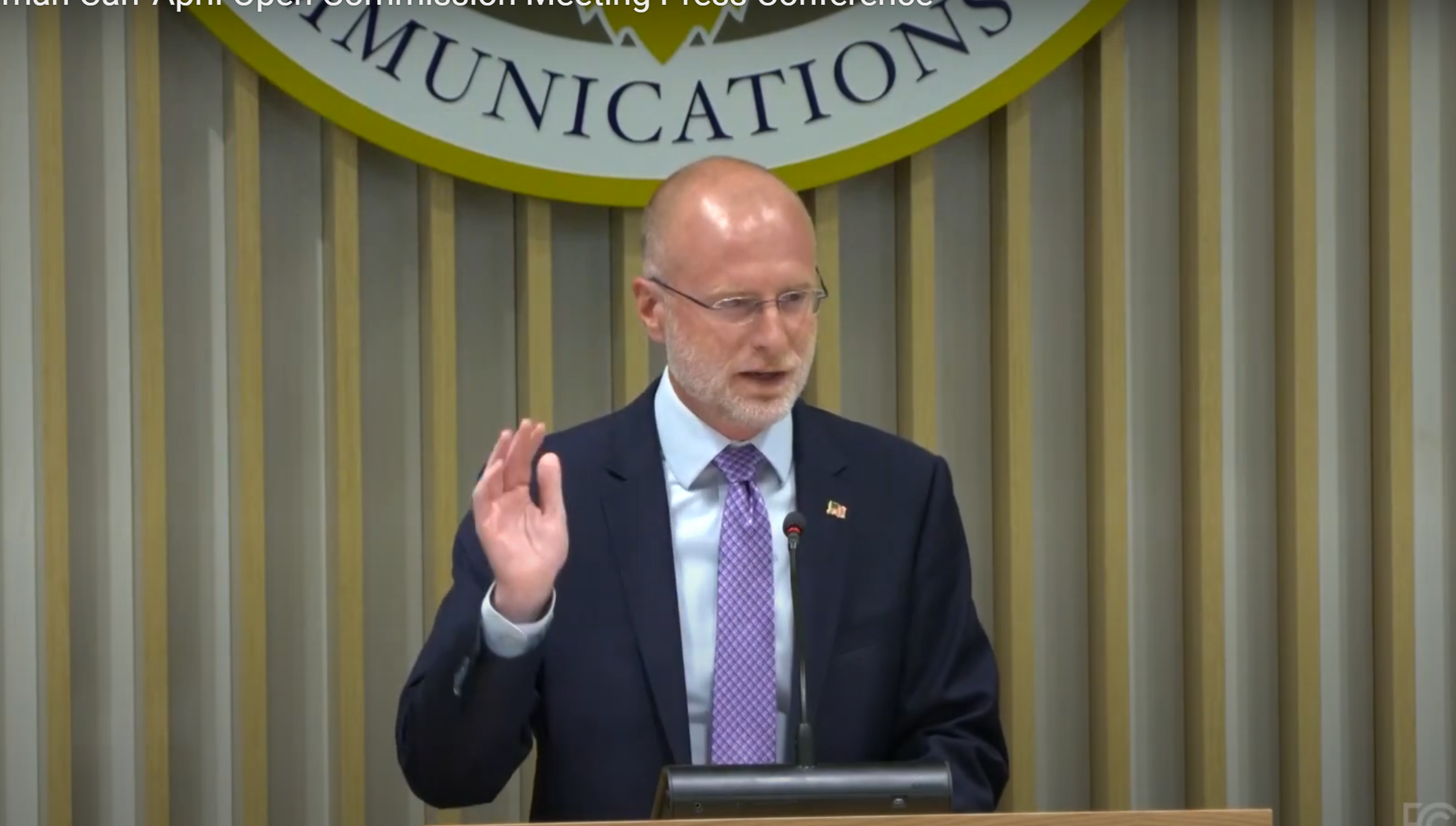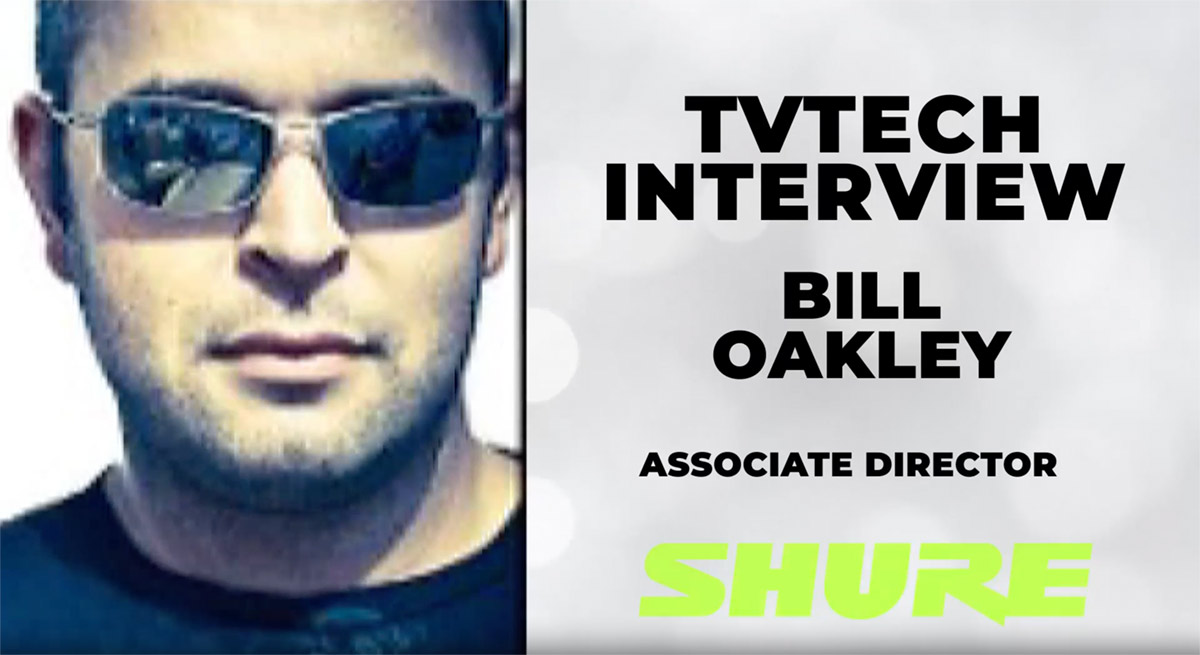NAB to FCC: Don’t Delete Certain Retransmission Rules
Trade group rebuts pay-TV operator proposal to reduce blackouts by changing rules governing retransmission consent, carriage negotiations

WASHINGTON—The National Association of Broadcasters has filed a wide-ranging rebuttal to proposals by the pay TV industry that the Federal Communications Commission delete and/or significantly change rules governing retransmission consent and carriage agreements with broadcasters.
The NAB also filed detailed comments on many of the tech and regulatory proposals it made in an early filing listing the regulations it would like to see eliminated or reduced.
The FCC’s deregulatory push and the creation of a docket for public comments called “In Re: Delete, Delete, Delete,” had made the agency's Docket 25-133 one of the most popular items on the agency’s website, with over 1,125 filings as of the morning of May 1. Those comments include lengthy filings and letters from the National Association of Broadcasters, the Society of Broadcast Engineers, state broadcasting associations, America’s Public Television Stations, PBS, Nexstar, Sinclair, Gray Media, Mission Broadcasting and many individual TV stations.
In response to the Delete, Delete, Delete effort, the NCTA, pay TV operators like EchoStar and other telecom groups have also filed proposals to reduce blackouts of stations during contentious negotiations for new retransmission consent or carriage agreements.
In an April 29 filing, the NAB again stressed that broadcasters are already excessively regulated and pushed for the elimination of all ownership caps.
“Part 73 of the CFR [Code of Federal Regulations] alone spans a whopping 423 pages – more than any other regulated service, and more than double the number in Part 76 covering multichannel video programming distributors (MVPDs),” the NAB said. “The record in this proceeding is clear: The rules governing broadcasting are not only excessive, but they are also obsolete and counterproductive. They discourage investment, hinder innovation, and place broadcasters at a structural disadvantage … It is time to delete, delete, delete down to the core regulatory framework that supports innovation, investment, and choice for broadcasters and, most importantly, the audiences they serve.”
As part of that, the NAB would like the FCC to eliminate ownership caps, reduce rules that impede the transition to NextGen TV, to sunset ATSC 1.0 broadcasts, update EAS rules and reduce paperwork and rules relating to children’s programming, equal employment opportunity (EEO) rules and other areas.
The professional video industry's #1 source for news, trends and product and tech information. Sign up below.
However, the NAB blasted attempts by pay TV providers to change certain rules relating to retransmission and carriage negotiations.
“There are certain parties who support self-serving and anticompetitive proposals designed to keep broadcasters mired in the morass of existing regulations or even add to them to maintain their comparative advantage over TV and radio stations,” the NAB said. “In particular, NAB opposes the pay TV industry’s proposals concerning retransmission consent and other carriage issues that are unlawful, harmful to consumers, seek to increase regulation in contravention of the goals of this proceeding, or brazenly ask the commission to eliminate rules required by statute.”
More specifically, the NAB said pay TV “proposals for certain retransmission consent and other carriage-related ‘reforms’ are unlawful, contrary to the purpose of this proceeding or both.”
The NAB added: “A few pay TV commenters [have] … attempted to recast their past proposals for additional rules as proposals to delete rules … Virtually all these proposals have been advanced previously as part of pay TV providers’ longstanding strategy of seeking to artificially depress the fees they pay broadcasters for repackaging and reselling broadcast content. Because their proposals would advance pay TV providers’ efforts to stifle competition from television stations, harm consumers, and contravene both the Communications Act of 1934 (Act) and the goals of this proceeding, the Commission should decline to adopt them.”
In the filing, the NAB rebutted a large number of specific proposals by NCTA: The Television & Internet Association and other pay TV-backed groups. It also argued that EchoStar’s proposal that the FCC should allow satellite operator to import signals from other stations was “unlawful.” The EchoStar proposal would significantly strengthen pay TV operators' negotiating position in retransmission disputes.
“While NAB agrees that some of the rules should be eliminated to provide broadcasters with greater flexibility, others remain essential to ensuring quality service to the public and should be retained,” it concluded.
The filing also addressed a number of technical issues, including:
- Certain proposals by low-power FM radio (LPFM) advocates that could change the local nature of the service and increase the risk of interference to FM services;
- Significant concerns regarding proposed rule changes that would allow FM radio stations to operate from distributed transmitters instead of a single main transmitter.
- NAB said it supports allowing greater power and flexibility to ultra wideband (UWB) systems.
- It argued that Very Low Power (VLP) operations cannot avoid the requirement to include antennas in 6 GHz VLP Devices.
- NAB supported proposals concerning interference protection of TV channels 10 and 13 by PTC operations.
- It argued that FM allocation requirements should not be eliminated.
- Rules concerning FM6 LPTV stations should be retained, the NAB said.
- Special Temporary Authority (STA) filing requirements in the Licensing and Management System (LMS) should be eliminated for situations that have little potential for increasing interferenc, the NAB argued.
- The NAB said that the agency should reject requests to eliminate protections for TV channel 6, which "the commission has repeatedly determined to retain."
- Finally, the FCC should eliminate its White Space Devices rules, as this is a failed service that does not warrant continued inclusion, the filing said.
The full filing is available here.
George Winslow is the senior content producer for TV Tech. He has written about the television, media and technology industries for nearly 30 years for such publications as Broadcasting & Cable, Multichannel News and TV Tech. Over the years, he has edited a number of magazines, including Multichannel News International and World Screen, and moderated panels at such major industry events as NAB and MIP TV. He has published two books and dozens of encyclopedia articles on such subjects as the media, New York City history and economics.

